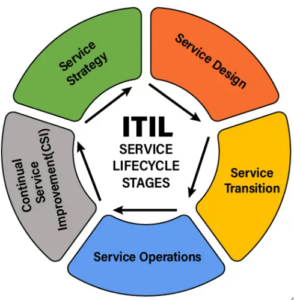Selling your business can be a significant milestone, whether it’s to pursue new ventures, retire, or simply move on to other opportunities. However, navigating the process of selling a business requires careful planning, strategizing, and execution. This comprehensive guide will walk you through the essential steps and considerations involved in crafting an effective exit strategy for selling your business.
1. Assessing Your Business
Before diving into the process of selling your business, it’s crucial to conduct a comprehensive assessment of its current state. This assessment should include:
Financial performance: Review your financial statements, including income statements, balance sheets, and cash flow statements, to understand your business’s profitability and financial health.
Market position: Evaluate your market position, including your competitive landscape, market share, and potential for growth.
Operational efficiency: Assess the efficiency of your business operations, including processes, systems, and resources.
Intellectual property: Identify any intellectual property assets, such as patents, trademarks, or proprietary technology, that add value to your business.
Understanding these key aspects will not only help you determine the value of your business but also identify areas for improvement that can enhance its attractiveness to potential buyers.
2. Establishing Clear Objectives
Before proceeding with the sale of your business, it’s essential to establish clear objectives for the process. Consider what you hope to achieve from the sale, whether it’s maximizing financial returns, finding the right buyer to carry on your legacy, or ensuring a smooth transition for employees and customers. Clearly defining your objectives will guide your decision-making throughout the sale process and help you prioritize what matters most to you.
3. Preparing Your Business for Sale
Preparing your business for sale is a critical step in maximizing its value and attractiveness to potential buyers. This may involve:
Financial due diligence: Ensure your financial records are accurate, up-to-date, and well-documented to instill confidence in potential buyers.
Cleaning up your operations: Streamline your business operations, address any inefficiencies, and resolve any outstanding legal or regulatory issues to present a well-run and attractive business.
Enhancing curb appeal: Invest in cosmetic improvements, such as updating your website, refreshing your branding, or renovating your physical location, to enhance the visual appeal of your business.
Securing key contracts: Renew or renegotiate important contracts, such as supplier agreements or customer contracts, to provide stability and certainty to potential buyers.
By preparing your business for sale, you can increase its perceived value and make it more appealing to prospective buyers.
4. Marketing Your Business
Once your business is prepared for sale, the next step is to market it to potential buyers. This may involve:
Creating a compelling sales pitch: Develop a compelling narrative that highlights the unique value proposition of your business, its growth potential, and its competitive advantages.
Identifying potential buyers: Identify potential buyers who may be interested in acquiring your business, whether they’re strategic buyers, financial investors, or competitors.
Confidentiality: Maintain confidentiality throughout the sale process to protect sensitive information and minimize disruption to your business operations.
Leveraging professional networks: Utilize professional networks, such as business brokers, investment bankers, or industry associations, to connect with potential buyers and facilitate the sale process.
Effective marketing can help attract qualified buyers and generate interest in your business, ultimately increasing the likelihood of a successful sale.
5. Negotiating the Sale
Negotiating the sale of your business requires careful consideration of various factors, including price, terms, and conditions. Key aspects of the negotiation process include:
Valuation: Determine a fair and realistic valuation for your business based on its financial performance, market position, growth prospects, and other relevant factors.
Price structure: Consider different price structures, such as cash payments, earn-outs, or seller financing, and negotiate terms that align with your objectives and risk tolerance.
Due diligence: Facilitate the due diligence process to allow potential buyers to conduct a thorough review of your business’s operations, finances, and legal status.
Deal structure: Negotiate the deal structure, including the allocation of assets, liabilities, and responsibilities, to ensure a smooth transition and minimize post-sale disputes.
Effective negotiation skills and a clear understanding of your objectives will help you achieve a favorable outcome in the sale process.
Conclusion:
Selling Your Business In Dubai is a significant undertaking that requires careful planning, preparation, and execution. By assessing your business, establishing clear objectives, preparing it for sale, marketing effectively, and negotiating wisely, you can maximize its value and achieve a successful exit. Whether you’re looking to pursue new opportunities, retire, or simply move on to the next chapter of your life, following these exit strategy essentials will help you navigate the sale process with confidence and achieve your goals.










